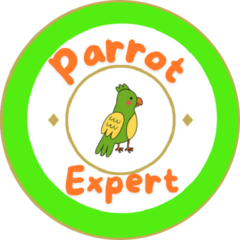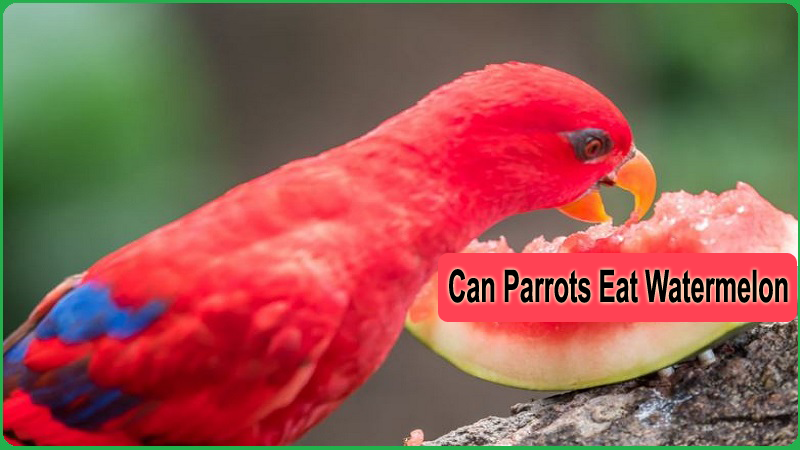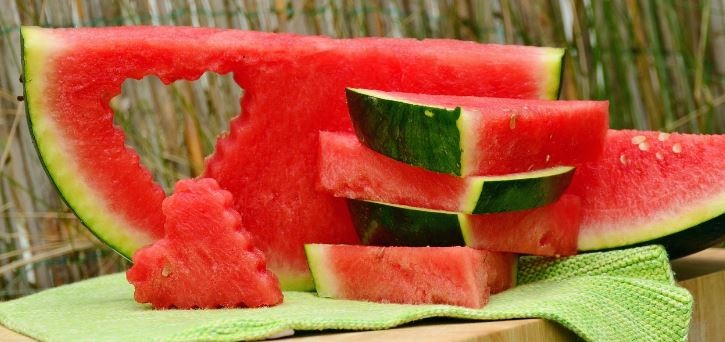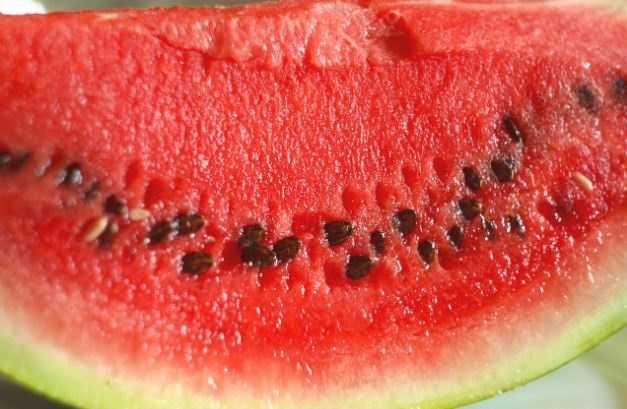Everyone likes to taste and texture of sweet, flavorful fruit, and juicy watermelon during hot weather. As you known about watermelon is a good fruit for human beings, but can your beloved parrots prefer it too? Otherwise can parrots eat watermelon, and their seed and rind? Here, you will get all answers of your questions regarding parrots for watermelon.
Don’t skip it! If you haven’t enough time, then short answer is “Yes”. Your beloved parrots can take small quantities of watermelon for a healthy balanced diet. If, parrots eat watermelon too much, then many issues can be happened. So, keep reading to learn complete, because little knowledge is dangerous.
Watermelon offers the nutritional value to your parrot, when you serve it with mix up different kinds of fruits and vegetables. They help to boost up your parrot’s immunity and health that can even define their level of activity.
Is Watermelon Safe for Parrots?
Yes! Watermelon is safe stuff for parrots to eat, including their seeds and flesh. It is a best nutritious and hydrating treat that can be beneficial for your parrots, due to its vitamins and minerals.
Important! You should remove the rind before giving it to parrots to avoid potential exposure to pesticides. Serve Watermelon in small pieces, and parrots can also enjoy watermelon juice.
Moderation is important! Watermelon should only make up a portion of a parrot’s daily diet to ensure a balanced nutritional intake.
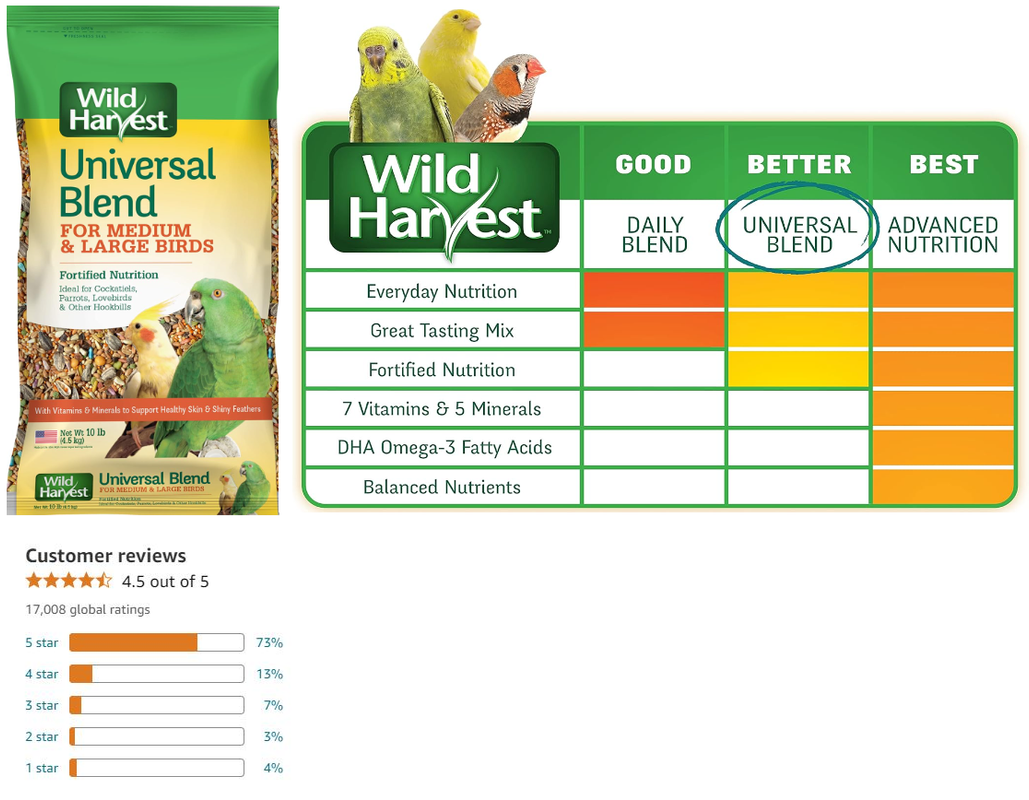
Benefits of Watermelon for Parrots
Watermelon is a healthy addition to a parrot’s diet that offering various benefits due to its nutritional content.
Hydration
High Water Content: Watermelon contains the approximate 92% water. So, this food helps to keep parrots well-hydrated, and especially important during hot weather; otherwise if they live in dry indoor environments.
Nutritional Value
Vitamin A: It is essential for maintaining healthy eyesight, skin, and mucous membranes. It is also supportive for immune system and reproductive health.
Vitamin B6: It plays the vital role in brain development and function. It also is helping out the production of serotonin and nor-epinephrine. They contribute the regulate mood, melatonin, and sleep cycle.
Vitamin C: It is important for immune function, skin health, and the repair of tissues. Although, parrots can synthesize their own vitamin C, an additional dietary source can still be beneficial.
Low in Calories
Weight Management: Watermelon has low calories, so making it a suitable treat for parrots without gaining weight. It is essential keep managing calorie intake for preventing obesity. It can pose various fatty liver disease and cardiovascular issues.
Antioxidants
Lycopene: A powerful antioxidant contributes to give watermelon its red color. It helps protect cells from losing caused by free radicals; otherwise it can pose several chronic diseases.
Beta-Carotene: Another antioxidant that converts to vitamin A in the body. It is supportive for eye health, skin health, and immune function.
Digestive Health
Dietary Fiber: Watermelon contains a modest amount of dietary fiber, so it aids in digestion and helps maintain healthy bowel movements. Fiber is important factor to prevent the constipation, and promoting a healthy gut microbiome.
Natural Sugars
Energy Boost: Watermelon also employs the natural sugars, such as fructose. It provides a quick source of energy. Unlike processed sugars; these natural sugars are healthier, and less likely to cause problems if consumed in moderation.
Enrichment
Mental Stimulation: Watermelon also offers enrich activity to parrots. Its texture and taste provide sensory stimulation. The act of eating a new and different type of food can be mentally engaging for them. So, this helps prevent boredom and promotes overall well-being.
Breakdown Nutritional facts of Watermelon for Parrots
Here, you will get the breakdown of the nutritional facts of watermelon for your beloved parrots:
| Nutrient | Amount Per 100g |
|---|---|
| Water | 91.5g |
| Energy | 30 kcal |
| Protein | 0.6g |
| Total Fat | 0.2g |
| Carbohydrates | 7.6g |
| Fiber | 0.4g |
| Vitamin A | 28μg |
| Vitamin C | 8.1mg |
| Vitamin B1 (Thiamine) | 0.033mg |
| Vitamin B2 (Riboflavin) | 0.021mg |
| Niacin | 0.178mg |
| Vitamin B6 | 0.045mg |
| Folate | 3μg |
| Pantothenic Acid | 0.221mg |
| Choline | 2.2mg |
| Calcium | 7mg |
| Iron | 0.24mg |
| Magnesium | 10mg |
| Phosphorus | |
| Potassium | |
| Sodium | |
| Zinc | |
| Copper | |
| Manganese | |
| Selenium | |
| Lycopene |
Risks of Feeding Watermelon to Parrots
Here, we will show you major risks of feeding watermelon to parrots, including:
High Sugar Content: If, your parrot consumes watermelon in large amount, then it can lead to weight gain, and related health issues.
Digestive Issues: Happen diarrhoea and upset stomach, due to containing high water content.
Nutritional Imbalance: Over-dependency on watermelon can lead to a lack of other important nutrients.
Choking Hazard: feeding Seeds to parrot can pose a choking risk, and other digestive blockages.
Pesticide Exposure: If, you don’t wash watermelon properly; then rind can absorb pesticides and other contaminants.
Over hydration: Having highly water content can lead to over hydration and electrolyte imbalance.
How Do You Serve Watermelon to Your Loving Parrot?
Here are some steps and tips to ensure it’s a safe and enjoyable experience for your feathered friend:
Steps to Serve Watermelon to Your Parrot
Choose a Fresh Watermelon
- Most of time, always select a ripe, organic watermelon
- You keep ensuring about watermelon is free from any signs of spoilage or mold
Wash the Watermelon
- Use a vegetable brush to clean the surface, and remove any dirt, bacteria, or pesticide residues
Cut the Watermelon
- Should use a clean knife to cut the watermelon into manageable slices
- Remove the rind and the seeds carefully
Prepare Parrot-Sized Pieces
- Cut the watermelon flesh into small, bite-sized pieces appropriate for your parrot’s size. Smaller pieces are easier for them to handle and eat.
Serve in a Clean Dish
- Keep the pieces in a clean shallow dish, or directly into your parrot’s food bowl
- You can also hand-feed small pieces to your parrot as a bonding activity.
Tips for Serving Watermelon
Moderation: You can allow watermelon as a treat rather than a regular part of their diet.
Remove Uneaten Portions: Remove any uneaten watermelon after a couple of hours. So it prevents the spoilage and bacterial growth.
Observe Reactions: You always keep monitoring your parrot for any adverse reactions, such as changes in droppings or behavior.
Introduce Gradually: If, your parrot is trying watermelon as first time, then you should introduce it gradually to ensure they tolerate it well.
Can Parrots Eat Watermelon Seeds?
Yes! Parrots can safely eat watermelon seeds. Parrots show interest into the seeds first when feeding watermelon, because they offer the enrichment and are nutritious. Parrots have a strong jaw; so it can help to crack open the seed shells.
The watermelon’s seeds consist several beneficial nutrients, such as copper, zinc, magnesium, potassium, and folate. These are important for feather growth, bone growth, heart health, and metabolism.
However, you should avoid watermelon seeds. They contain small amounts of cyanogenic glycosides that can release cyanide when metabolized, and posing a toxicity risk.
How Much Watermelon Should I Allow to Parrot?
With following these guidelines; you can easily add watermelon into your parrot’s diet as an occasional treat.
Serving Size
Small Parrots (Like as Budgies and Cockatiels)
- You can offer a small piece about the size of a thumbnail, 1-2 times a week.
Medium Parrots (Like as Conures and Quakers)
- Provide a piece about the size of a small grape, 1-2 times a week.
Large Parrots (Like as African Greys and Amazons, Macaws)
- Should give a piece about the size of large grape or small plum, 1-2 times a week
General Tips
Frequency: Given watermelon once or twice a week.
Portion Control: Should feed watermelon as small part of parrot’s diet. You have to make up less than 10% of their weekly food intake.
Observation: Always monitor your parrot for any signs of digestive upset or changes in behavior after eating watermelon.
Can Parrots Have Watermelon Rind?
Of Course! Parrots can eat watermelon rind, but with caution. The rind enables with amino acids and citrulline that can help reduce blood pressure and muscle fatigue.
However, often made the sprayed on the rind that stick to the waxy coating of the fruit; so, it is potentially harmful for parrots. To safely feed watermelon rind to your parrot:
- Use organically grown watermelon to avoid pesticides
- Wash the rind thoroughly to remove any remaining pesticides
- Scrape off a few outer layers before offering the rind to your parrot
If the watermelon is not organically grown, it’s best to avoid the rind to prevent potential health risks from pesticide exposure.
Can Parrots Have Watermelon Juice?
Yes! Parrots enjoy watermelon juice, because of its appealing to them due to its refreshing and sweet nature. Just, you have to blend the watermelon, and sieve out the seeds before feeding.
Watermelon juice is hydrating, and can provide a tasty treat for parrots. Keep remember that watermelon, including the juice, should only make up about 15% of a parrot’s daily diet.
Final Thoughts
If, you serve watermelon to your parrots correctly, then it can be a safe and enjoyable to your parrot’s diet. With following to these guidelines, you can feed this sweet, hydrating fruit as a tasty and beneficial treat for your beloved parrot.
If this article is helpful for you, then please share it along with your friends, family members, pet lovers or relatives over social media platforms like as Facebook, Instagram, Linked In, Twitter, and more.
If you have any experience, tips, tricks, or query regarding on this? You can drop a comment!
Have a Nice Day!!
